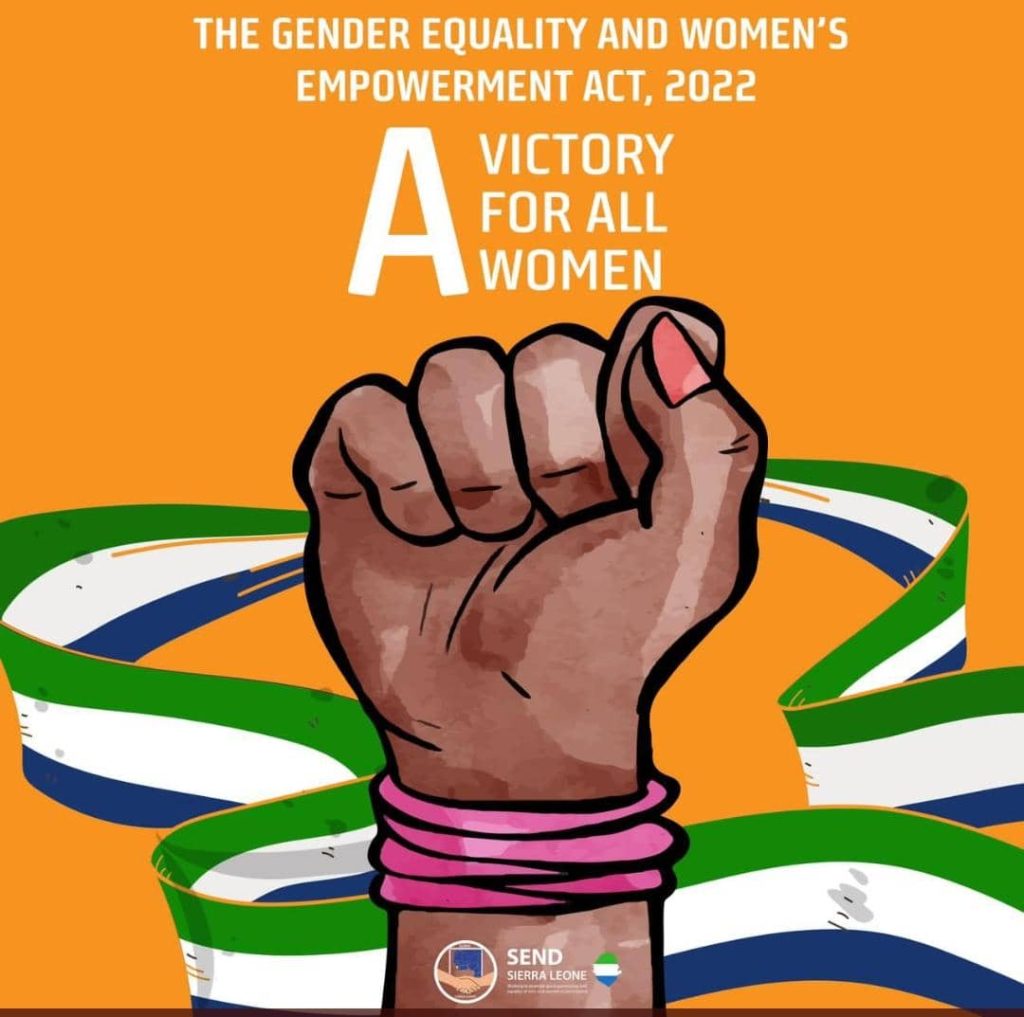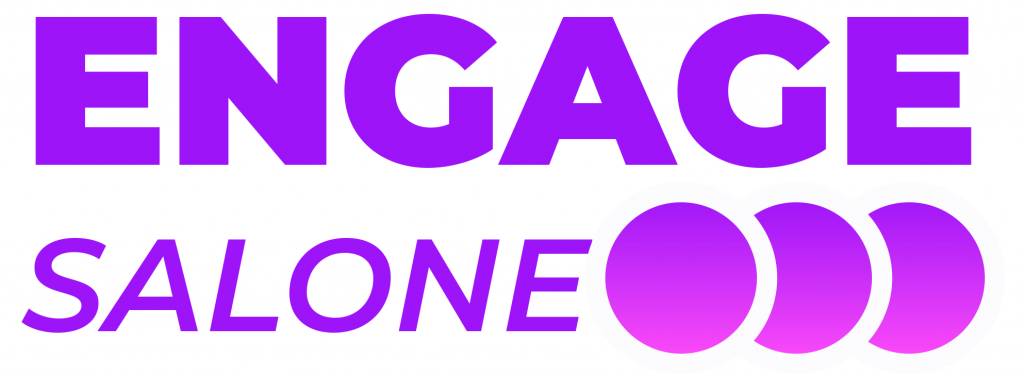This week, Sierra Leone’s parliament passed the Gender Equality and Women’s Empowerment (GEWE) Bill 2021 into law. The GEWE Act comes after many years of struggle, advocacy and campaigning by Sierra Leonean women, activists and local and international organisations. It guarantees a 30% minimum quota for women in electable offices, public and private employment; equal pay for equal work; and equal access to financial and credit services, among others. Congratulations to the women of Sierra Leone, especially those who led the line, on this historic achievement.
That the GEWE Act is a major victory for everyone interested in an equal and just society, cannot be overstated. It is the culmination of years of hard work, demanding and lobbying. Many women’s rights and equality campaigners dedicated significant periods of their career and lifetime trying to make this a reality.
This is also an opportunity to appreciate the importance of the new law; how it is going to sit within the wider Sierra Leonean context and the task ahead to make it work.
We can say that the provisions are not adequate, and our society needs to do more to be more inclusive and equal. What we cannot discount though is the fact that this is progress, and it is a historic one. Hopefully, the President will give his assent; and then, we will begin to assess the willingness of the State to put the law to work.
While celebrations are well in place, our optimism and expectations should be guided by our collective experiences living in Sierra Leone, where passing laws is one thing, but to get them working for the benefit of everyone is a totally different ballgame. In 2007, Sierra Leone enacted three pieces of legislation dubbed the “gender laws” — the Domestic Violence Act, the Devolution of Estate Act, and the Registration of Customary Marriage and Divorce Act. That was another defining moment in the fight for equality and justice; but till now, it is a struggle to fully implement them.
Our inability to put laws to work is pretty straightforward to explain. First, we enact laws and invest less in creating the enabling conditions to make them work—little political will and appetite for full implementation; the inconvenience of truly shaking up the existing power structures; and strengthening the independence of institutions that promote rule of law. And at the end, it paints a picture of box-ticking and donor-pleasing, with little impact on the ordinary person. We should hope that the GEWE ushers in a new experience that departs from the history that we are familiar with. Second, we seem to over-rely on policies and laws while ignoring the conditions that shape the prevailing power structures (social, cultural and economic/material conditions) that impede implementation. Let’s unpack these in very practical terms.
The State would enact a law, establish a specialised government agency to preside over its implementation (you know how we like to create committees, agencies and commissions) and then turn around to undermine those very structures through politicisation, under-funding (or over-relying on donations) and failure to address the overarching barriers and challenges. Laws are legal and their effective implementation depends largely on the willingness and ability of the justice system. Where political party interests, as well as the interests of the Executive (unfortunately, the most powerful arm of government in practical terms) are threatened by the law, the rule of law becomes secondary. Isn’t that how it works in Sierra Leone? Sadly, the GEWE risks the same fate and only continued advocacy and pressure, or a sudden shift in the behaviour of the political leaders would cause the State to make its implementation effective. No intention of spoiling the party here; we are basically trying to situate the GEWE within its Sierra Leonean reality.
It is also hard to understand how the government takes so much pride in passing laws as progressive as the GEWE Act, but equality or reasonable representation in the same government leaves much to be desired. Far more male cabinet ministers than women; heads of most public institutions with their deputies, appointed by the President are men; and women in top positions and in politics are targeted either for political reasons or just because they try to do their job like the Auditor General, Lara Taylor-Pearce. This makes you question the sincerity of the political leaders when they pass such laws, and sadly this does not make the outlook as promising as we would expect. There is already a big gap between policy/law and practice.
The aspect of the GEWE Act that focuses on financial inclusion and equality is a very important element that deserves special commendation to the people who put it together. There can never be political freedom and equality without addressing the economic empowerment of women. Social class differences, divergent political interests, and how that might affect “equalilification” [our word] efforts bring into play our second explanation on enabling conditions for laws to work and for actual change and empowerment.
The assumption is that the more women we have in decision-making positions, the better the lives of all women would be. While this may be correct, it is important to appreciate that, like the rest of society, the women group is stratified into various social classes that do not have a homogenous interest. These classes are very important tools for understanding how we relate and how power structures are shaped. It is at this point that individual or group interests begin to contend, and big “P” politics also becomes a defining factor. And if we are not careful and deliberate, we end up with a new status quo in which the new women elite become oppressors of the rest of the group, or indifferent, just the way the political class that we have today replaced the colonisers to become the new oppressors of the people.
With that in mind, it is important that the State, and those who work on equality, approach the implementation of the GEWE Act with an acknowledgement of the class variations and their divergent interests. This means, complementing the GEWE Act with programmes outside the law that prioritise the advancement of the working women, especially those in the informal sector. Doing this means addressing the poverty, education, economic and justice questions, as well as harmful practices like female genital mutilation. These are all important in creating the enabling conditions for the full realisation of the spirit of the GEWE Act.
Whatever you are up to this weekend, may it be GEWE!
About The Author
- Engage Salonehttps://www.engagesalone.org/author/eng21_admin/
- Engage Salonehttps://www.engagesalone.org/author/eng21_admin/
- Engage Salonehttps://www.engagesalone.org/author/eng21_admin/
- Engage Salonehttps://www.engagesalone.org/author/eng21_admin/


